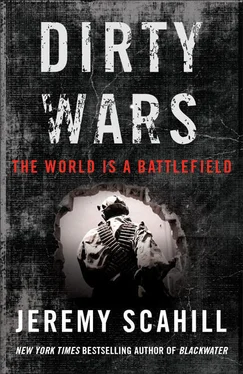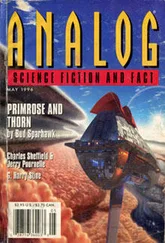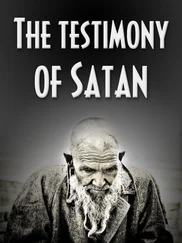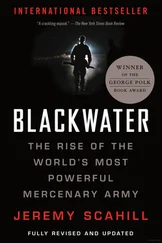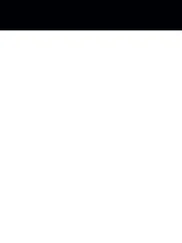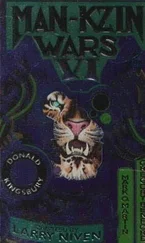Even among the GOP foreign policy community of elders, these figures were viewed as extremists. “When we saw these people coming back in town, all of us who were around in those days said, ‘Oh my God, the crazies are back’—‘the crazies’—that’s how we referred to these people,” recalled Ray McGovern, who served for twenty-seven years at the CIA and was a national security briefer to George H. W. Bush when he was vice president and served under him when he was the director of the Agency in the late 1970s. McGovern said that once they were in power, the neoconservatives resurrected ideas that had been tossed in “the circular file” in previous GOP administrations by veteran Republican foreign policy leaders, adding that those extremist ideas would soon “arise out of the ashes and be implemented.” These officials believed, “We’ve got a lot of weight to throw around, we should throw it around. We should assert ourselves in critical areas, like the Middle East,” McGovern said.
For decades, Cheney and Rumsfeld had been key leaders of a militant movement outside of government and, during Republican administrations, from within the White House itself. Its mission was to give the executive branch of the US government unprecedented powers to wage secret wars, conduct covert operations with no oversight and to spy on US citizens. In their view, Congress had no business overseeing such operations but should only fund the agencies that would carry them out. To them, the presidency was to be a national security dictatorship, accountable only to its own concepts of what was best for the country. The two men first worked together in the Nixon White House in 1969 when Rumsfeld hired Cheney, then a graduate student, to be his aide at the Office of Economic Opportunity. It kicked off a career for Cheney in the power chambers of the Republican elite and a lifetime project to further empower the executive branch. As scandal rocked the Nixon White House in the 1970s—with the secret bombings of Laos and Cambodia, revelations of a domestic “enemies” list and the infamous break-in at the Democratic National Committee’s headquarters at the Watergate Hotel—the US Congress began attacking the executive privileges and extreme secrecy that permeated the administration. Congress condemned the Laos and Cambodia bombings and overrode an attempt by Nixon to veto the War Powers Act of 1973, which limited the powers of the president to authorize military action. It mandated that the president “consult with Congress before introducing United States Armed Forces into hostilities or into situations where imminent involvement in hostilities is clearly indicated by the circumstances.” In the absence of a formal declaration of war, the president would be required to inform Congress, in writing, within forty-eight hours, of any military action of “the circumstances necessitating the introduction of United States Armed Forces; the constitutional and legislative authority under which such introduction took place; and the estimated scope and duration of the hostilities or involvement.” Cheney viewed the War Powers Act as unconstitutional and an encroachment on the rights of the president as commander in chief. He termed this era the “low point” in American presidential authority.
After the Watergate scandal forced Nixon’s resignation, Cheney went on to serve as President Ford’s chief of staff, while Rumsfeld served as the youngest defense secretary in US history. In 1975, Congress intensified its probes into the underworld of secret White House operations under the auspices of the Church Committee, named for its chair, Democratic senator Frank Church of Idaho. The committee investigated a wide range of abuses by the executive branch, including domestic spying operations against US citizens. The Church Committee’s investigation painted a picture of lawless, secret activities conducted with no oversight whatsoever from the courts or Congress. The committee also investigated the involvement of the United States in the overthrow and eventual death of Chile’s democratically elected socialist president Salvador Allende in 1973, though Ford invoked executive privilege and stymied the probe. At one point during the Church investigations, Cheney attempted to compel the FBI to investigate famed investigative journalist Seymour Hersh and to seek an indictment against him and the New York Times for espionage in retaliation for Hersh’s exposé on illegal domestic spying by the CIA. The aim was to frighten other journalists from exposing secret controversial actions by the White House.
The FBI rebuffed Cheney’s requests to go after Hersh. The end result of the Church investigation was a nightmare for Cheney and his executive power movement: the creation of congressional committees that would have legally mandated oversight of US intelligence operations, including covert actions. In 1980, Congress enacted a law that required the White House to report on all of its spy programs to the new intelligence committees. Cheney—and Rumsfeld—would spend much of the rest of their careers attempting to thwart those authorities.
By the end of the liberal Carter administration, Cheney concluded that the powers of the presidency had been “seriously weakened.” Throughout the years of the Reagan administration, Cheney served as a Wyoming representative in Congress, where he was a fierce backer of Reagan’s radical drive toward reempowering the White House. As Pulitzer Prize–winning author Charlie Savage noted in his book, Takeover: The Return of the Imperial Presidency and the Subversion of American Democracy, Reagan’s Justice Department sought to end “the congressional resurgence of the 1970s,” commissioning one report that called for the White House to disregard laws that “unconstitutionally encroach upon the executive branch.” Instead, the Reagan White House could use presidential “signing statements” to reinterpret laws and issue presidential edicts that could be used to circumvent congressional oversight. In the early 1980s, the Reagan administration was deeply embroiled in fueling a right-wing insurgency against the leftist government of the Sandinistas in the Central American nation of Nicaragua. The centerpiece of this campaign was covert US support for the right-wing Contra death squads. Reagan also authorized the mining of the harbors around Nicaragua, bringing an unlawful use of force judgment against the United States at the World Court.
When the US Congress finally moved in 1984 to ban all US assistance to the Contras, passing the Boland Amendment, some officials within the Reagan White House, led by Colonel Oliver North, who worked on the National Security Council, began a covert plan to funnel funds to the right-wing rebels, in direct contravention of US law. The funds were generated by the illicit sale of weapons to the Iranian government, in violation of an arms embargo. Fourteen members of the Reagan administration, including his secretary of defense, were later indicted for their involvement. When the Iran-Contra scandal unfolded, and Congress aggressively investigated its origins, Cheney emerged as the White House’s chief defender on Capitol Hill and issued a dissenting opinion defending the covert US program that most of his congressional colleagues had deemed to be illegal. Cheney’s “minority report” defending the White House condemned the congressional investigation into Iran-Contra as “hysterical.” The report charged that history “leaves little, if any doubt that the president was expected to have the primary role of conducting the foreign policy of the United States,” concluding, “Congressional actions to limit the president in this area therefore should be reviewed with a considerable degree of skepticism. If they interfere with the core presidential foreign policy functions, they should be struck down.”
Читать дальше
